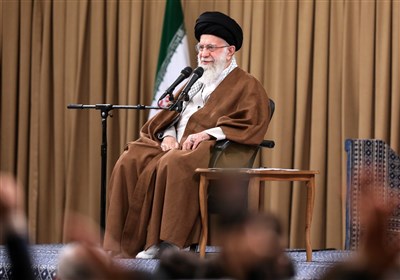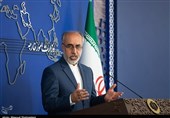Iranian MPs Draft Bill to Oblige Gov't to Produce 60% Enriched Uranium
TEHRAN (Tasnim) – Some 100 Iranian parliamentarians put forward a motion on Wednesday that if approved, will oblige the administration to enrich uranium at the 60% purity level in case fresh western sanctions are imposed on the country.
Speaking to the Tasnim News Agency on Wednesday, Seyed Mahdi Mousavinejad, member of the parliament’s energy commission, said the motion has been signed by 100 legislators, describing the move as a "gesture of support for the country’s nuclear negotiators in talks with the world powers."
“The final approval of the motion will obligate the administration to… enrich uranium at the 60 percent purity level if the (Group) 5+1 imposes fresh sanctions against the Islamic Republic of Iran,” Mousavinejad said.
Iran and the Group 5+1 (the five permanent UN Security Council members plus Germany) on November 24 signed a six-month deal on Tehran’s nuclear program based on which the world powers agreed to suspend some non-essential sanctions and to impose no new nuclear-related bans in return for Tehran's decision to freeze parts of its nuclear activities and to allow more inspection of its nuclear facilities.
He further noted that the proposed motion would also oblige the administration to complete the construction of the Arak heavy-water reactor.
Arak heavy-water reactor, also known as IR-40, uses natural uranium oxide fuel and is designed to produce radio medicines and also 40 megawatts of power.
Mousavinejad further described the move as a retaliation for the US Congress’ new efforts to pass anti-Iran resolutions.
On Thursday, December 19, a group of bipartisan US senators introduced new legislation to impose more sanctions against Iran despite the nuclear deal reached between Tehran and the world powers in Geneva last month.
The new sanctions bill seeks to enforce a total embargo on Iran's oil exports over the next two years and to choke off Tehran's ability to access any of its revenue held in foreign bank accounts. It also aims to curtail Iran's ability to gain revenue from economic sectors so far not significantly hit by sanctions, such as the mining, engineering and real estate industries.
The Senate bill came only a week after the US Treasury Department on December 12 slapped sanctions against more than a dozen companies and individuals for evading US sanctions against Iran. The blacklisting is widely seen as an attempt to head off moves in Congress to impose tougher sanctions that would be in clear breach of the Geneva agreement.





